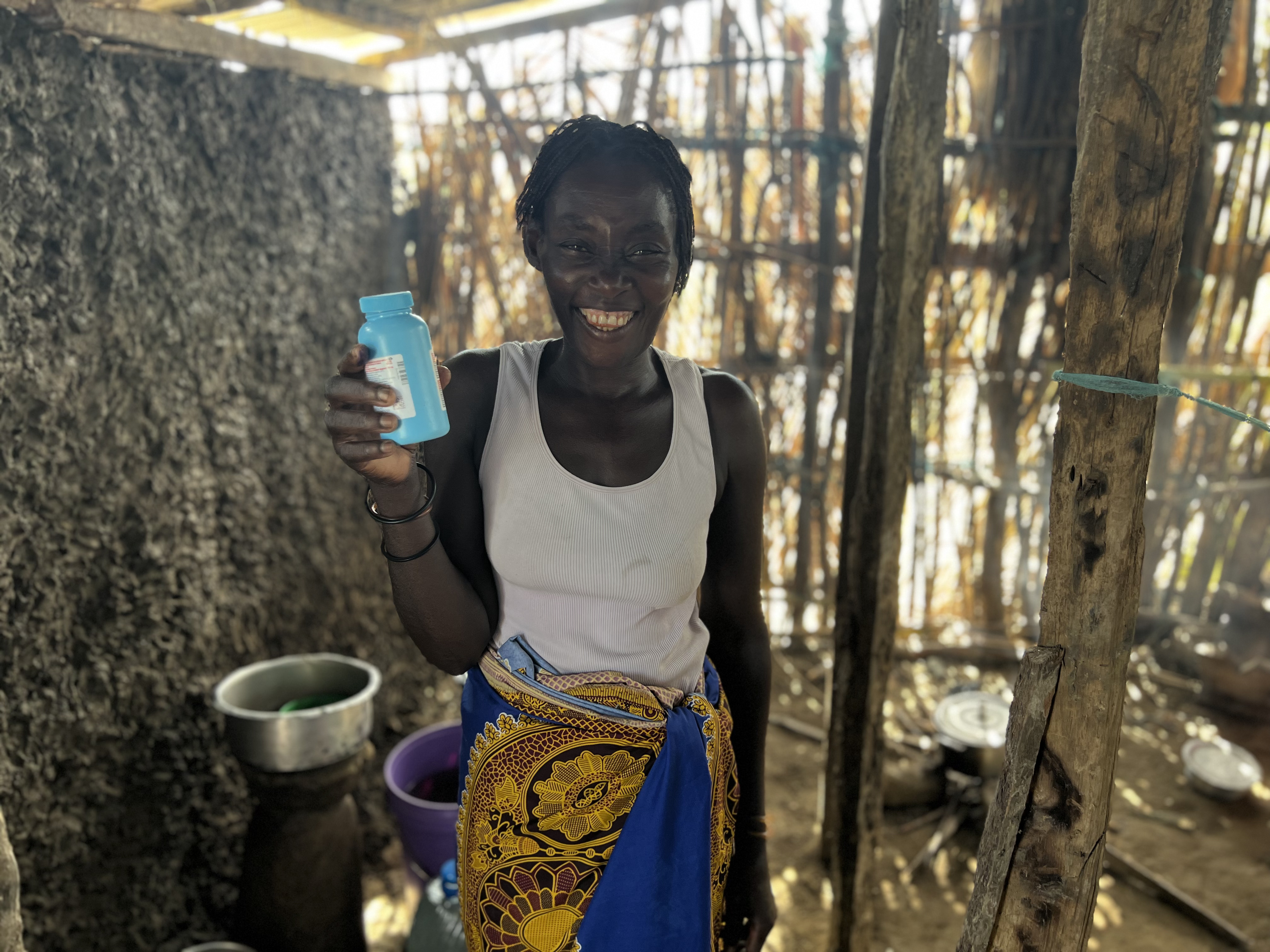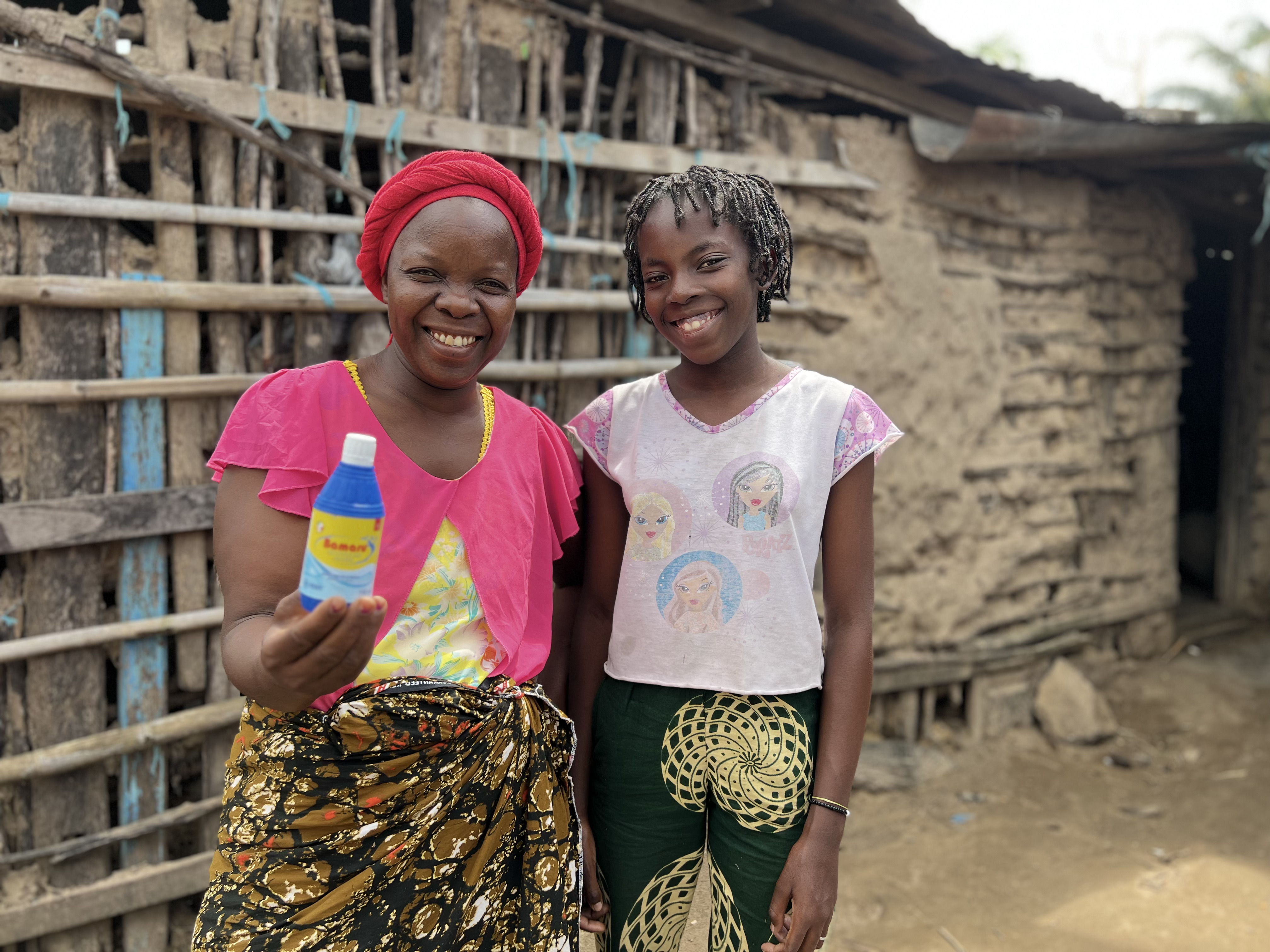“Thanks to the health providers that were working at the shelter at Eduardo Mondlane Secondary School, it was possible to have my antiretrovirals, continue my treatment and continue to live a healthy life,” Rita Diogo, who lost her home to Cyclone Freddy.

Rita Diogo is a thirty-eight year old resident of Micajune, a neighborhood in Quelimane City, the provincial capital of Zambézia Province. She has been receiving antiretroviral therapy (ART) since 2015. When Cyclone Freddy made landfall on March 11th, it hit approximately 30 kilometers from Quelimane. Winds with a maximum speed of 148 kilometers per hour resulted in widespread damage to homes, as well as the city’s electrical grid and telecommunication network. Micajune was one of the neighborhoods most severely affected by the storm. Diogo’s home, along with the homes of many of her neighbors, were completely destroyed by the strong winds and torrential rains. She lost all her belongings, including her antiretroviral medications.
The local government established several temporary shelter centers in schools and other public buildings to accommodate displaced persons. Rita Diogo knew the importance of continuing her ART, even in the midst of a natural disaster.
“My house was destroyed by the Cyclone, and I had to join my neighbors who went to Eduardo Mondlane Secondary School to find shelter, care, and food…Everything was left behind, including my medicine. I was desperate because my life depends on this medicine... When I arrived at the shelter, a health team came and said that we could receive medical assistance for various diseases, and we could pick up our medicine ... I was so happy!” she told us, smiling brightly.
Free from worrying about how she will get her medication, Diogo is focused on rebuilding her home with her husband, with support from their neighbors in Micajune.
Friends in Global Health (FGH), in coordination with the Zambézia District Health Authorities, supported twenty-four shelters in Quelimane and neighboring districts in the immediate aftermath of Cyclone Freddy. Support included the mapping of the most urgent health needs, and the implementation of mobile health brigades within each shelter. A total of twenty-three clinicians were allocated to the mobile health brigades, twenty-one of which were hired by the District Health Authorities with FGH support. A total of twenty FGH lay counselors were also allocated to the shelters. These personnel provided medical assistance to the individuals and families housed in the shelters, ensuring the continuation of HIV services.
As a result of flooding caused by Cyclone Freddy, which cut off access to running water, sanitation, and hygiene services, cholera cases began to rapidly increase, particularly in Quelimane City. Quelimane District Health Facilities were inundated by patients seeking emergency care for water born illnesses, including over 12,000 cholera cases confirmed in just one month.

Regina Caetano is a thirty-seven year old mother of five children and a resident of Micajune. While her house survived the cyclone, her family was affected by contaminated water. She explained to us,
“In my house there is a common tap, but the water was cut off in Quelimane and now I have to fetch it from a well. I had a situation where my children had problems with diarrhea, followed by vomiting.”
In response to the cholera outbreak, FGH and the Provincial Health Authorities trained 1,309 FGH volunteers, including Peer Educators, Male Champions, Pediatric Mentor Mothers, MCH Mentor Mothers, Adolescent Mentors, and Cough Officers, to integrate cholera prevention messages into their routine HIV-related home visits. Volunteers also began distributing bottles of chemical water purifier. Regina’s household received a visit from one such FGH volunteer:
“The community volunteer explained to me how I can use this water purifier to correctly treat my water to prevent cholera. It makes me happy to know that I can protect myself and my family. I advise everyone to treat their water to avoid illness, and always to wash their hands.”
By the end of March, VUMC/FGH was supporting 358,034 individuals on ART in Zambézia Province with PEPFAR/CDC funding. FGH support goes far beyond the strengthening of HIV services. FGH quickly recognized the need to adjust HIV service provision to the changing post-disaster conditions and to integrate routine support with emergency response to disease outbreak. In Quelimane, the response included the distribution of 16,319 bottles of water purifier by FGH supported volunteers in a period of just 15 days.
